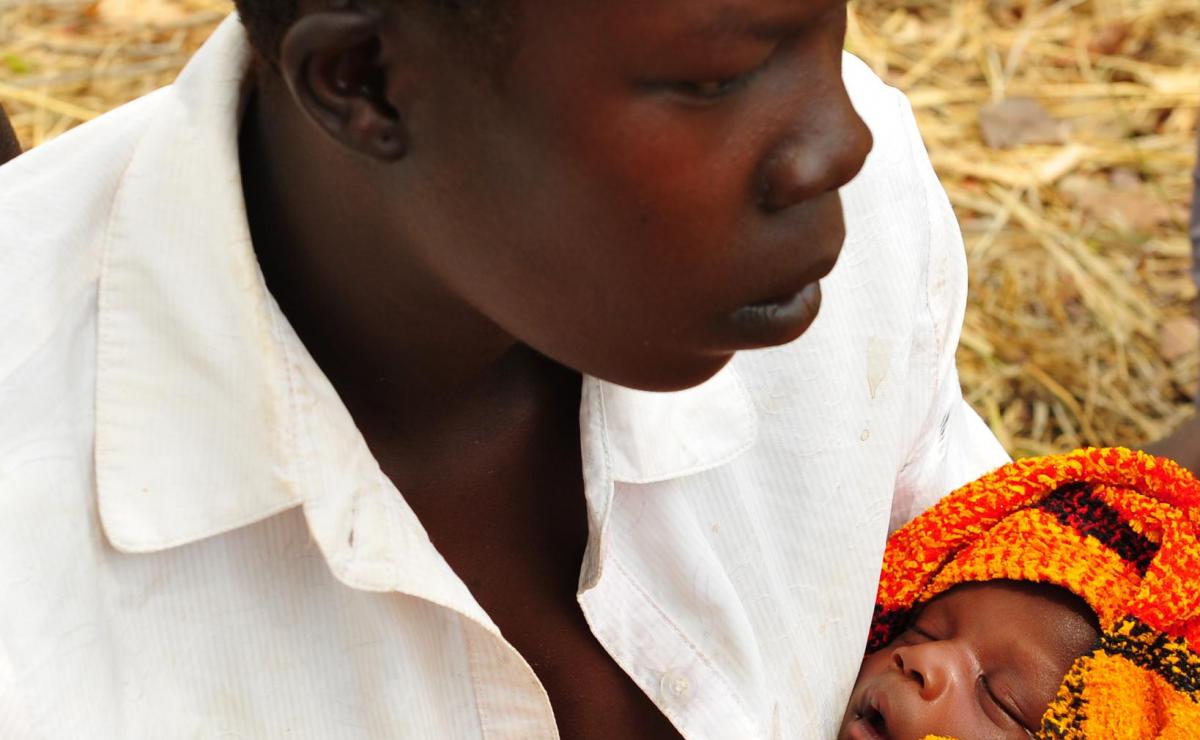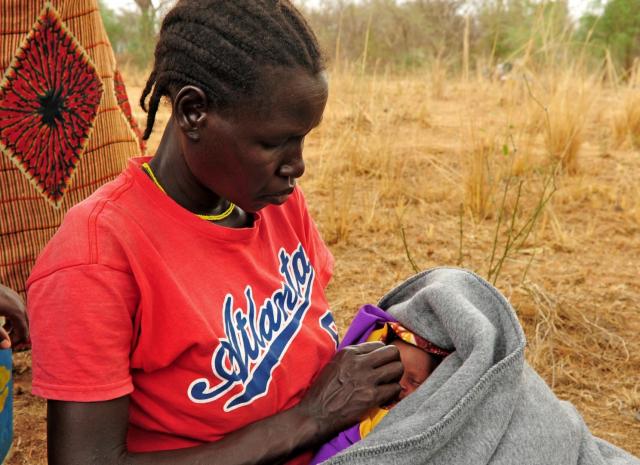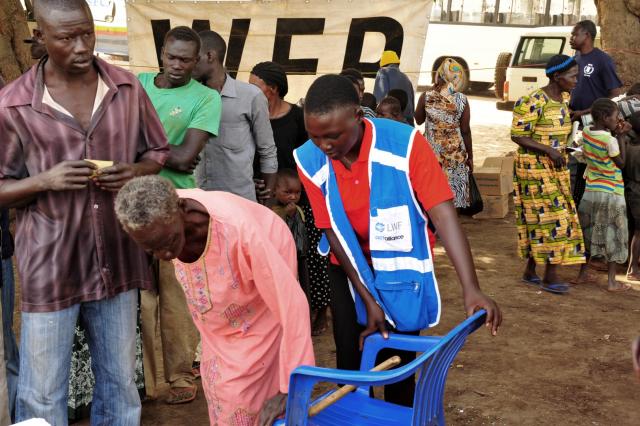Birth on a migrant journey

Northern Uganda - En route to Uganda, Betty Faiza a refugee and mother gave birth to a baby girl, Asante Dia at the border point of South Sudan and Uganda. Asante translates to thank you while Dia means fatherless. ‘’I named her Asante to thank God for giving her life despite being born in the toughest conditions,’’ Faiza says.
A 3 days’ trek to Uganda
Thirsty and hungry, pregnant Faiza walked through bushes from Kegulu in South Sudan towards Uganda. Away from the sound of gun shots, the mother of six wished to have her new baby in a securer environment and raise both the infant and her five siblings in a peaceful setting.
Despite her vulnerable condition, Faiza, 36 joined a group of South Sudanese fleeing the war-torn country to a safer place - Uganda. For three days, the heavily pregnant mother walked with her kitchen luggage on her head, hands intertwined with those of her two youngest children, Emma Tumalu, 6 and 9-year-old Peter Logale. She kept a close eye on the rest of her children making sure she didn’t lose sight of them.
Determined, the family spent days without food, losing almost all the energy they were left but never for once thought of giving up on their journey to a safer place or even turning back home. ‘’Our feet were swollen, my children and I were thirsty and hungry but, we couldn’t retreat because walking to safety was our only option,’’ Faiza says.

Birth en route to asylum
Legs clamped, sharp pain in her back and tummy, desperate Faiza called for a journey stopover, but before she sat, contractions set in with a strong force taking her down. Overpowered, Faiza cried out loud, asking for help from whoever cared. Faiza recalls women in the migration group being supportive through her pain and helping her deliver her baby. Down on bare red soil, baby Asante was brought to life.
‘’The sound of her beautiful little cry washed away my sorrow, tears filled my eyes and I couldn’t stop smiling with joy,’’ She says. For a moment, the happy family almost forgot about their worries as they celebrated baby Dia’s arrival. ‘’I have just lost my husband to the war and here I am blessed with a baby as precious as he was,’’ Faiza adds.
Just like Faiza, Janet Kayuge, a 23-year-old had her third child on her journey to Uganda. Tired from a three days’ walk from Bori, South Sudan, Kayuge gave birth to her child, Emanuel Lodanga with the help of a friend, Victoria Poni. Wrapped in a veil and suckling on its mother’s breast, Lodanga seems a very peaceful healthy child. However, his mother says that he too cries all through the night. ‘’My child has slept in the cold since he was born because we don’t have shelter. I fear he might have caught an infection, his temperature rises at night making him feel uneasy,’’ Kayuge said.
Having lost trace of her husband during the war back home, Kayuge fends for both herself and children, Beyonce Giye, 3, 5-year-old Franco Lodanga and little Emmanuel Lodanga. ‘’Do you think your husband is alive?’’ I asked. ‘’I am not certain but, I am hoping he is and I want us to reunite soon. We need him now more than ever,’’ She replied.

Life after birth for the migrant mothers and stretched resources
Could the babies and their mothers survive in the wilderness without medical attention, enough food and warm clothes? By God’s grace they did. Wounded and weak, the two mothers continued with their journey to Lefori collection point in Palorinya settlement. With a hot meal, they were received and registered by Lutheran World Federation staff from Lefori collection centre. The families were then relocated to Zone II and given core relief items like sanitary pads, knickers, soap and blankets. Other than core relief items, LWF in partnership with UNHCR, European Union and Actalliance provides WASH services, protection, livelihoods, shelter/construction, community service and environment protection to over 148,381 refugees in Palorinya settlement. Despite this, the babies’ needs are still lacking as their mothers wait for baby kits from the child protection department and a plot of land from Office of the Prime Minister for each to construct shelter.
Identified by Edvin Kojoki, LWF child protection extension worker in Palorinya settlement, the two mothers with their families have been shifted to the reception centre where they will stay until the construction of their shelters is finished. ‘’Babies are vulnerable and can’t be left out in the cold, we shall take both them and their mothers to the reception centre, provide shelter, access to medical care, core relief items, protection, water and clothes,’’ Kojoki says. She however adds that resources to support needy South Sudanese refugees are limited compared to their overflowing number.
''The number of staff is limitted, the supply of core relief items is delayed yet water supply systems and sanitation facilities are still lacking. And, I attribute all these to inadequate funding'' says Julius Kibet, LWF Moyo sub-program Manager.

